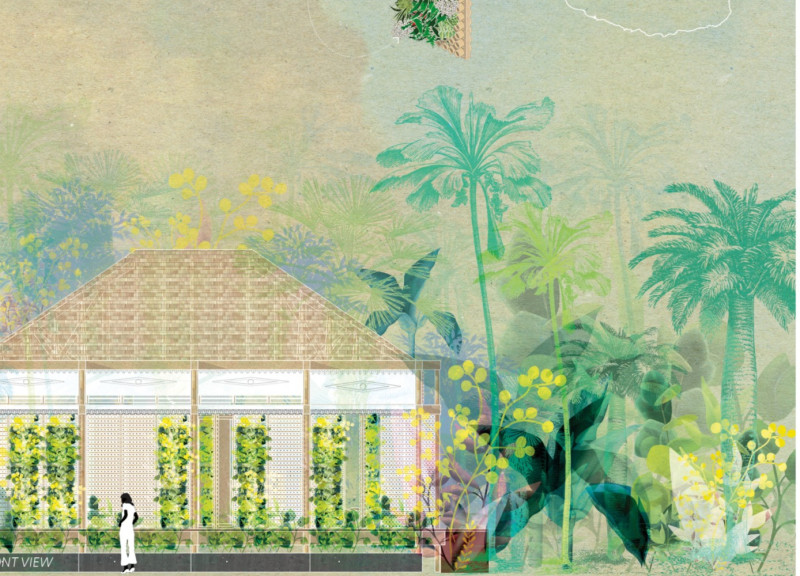5 key facts about this project
The microclimatic ti'kaz reinterprets the traditional Creole hut in the unique environment of Reunion Island. It serves as a self-sufficient living space that harmonizes with the surrounding nature, creating a home that purifies the air and provides food. The design focuses on making a sustainable lifestyle possible while connecting with local culture, addressing the realities of urbanization and dependence on external resources.
Spatial Organization
A notable feature of the microclimatic ti'kaz is its emphasis on outdoor living, a crucial aspect of daily life in the region. The layout includes a veranda oriented to the west, providing shelter from the strong trade winds while welcoming natural light and airflow. This combination enhances the interaction between indoor and outdoor areas, making the living experience more enjoyable and effective.
Water Management
The design incorporates an efficient rainwater harvesting system, highlighted by a wooden mantling that directs rainwater appropriately. Beneath the side walls, small bushes are planted to absorb water, preventing unnecessary splashing. These plants not only contribute to the system but also support phytodepuration, enhancing the ecological stability of the habitat.
Vertical Gardens
Surrounding the structure are vertical hydrological gardens made from bamboo panels, which create an environment that is both breathable and productive. This design element enriches the visual appeal of the building and promotes biodiversity. These gardens are essential for regulating the microclimate, emphasizing the thoughtful integration of green features in the overall concept.
Innovative Roofing
The roofing system uses tamarind wood shingles that collect solar energy and help maintain a comfortable indoor temperature. This material serves practical needs, providing domestic hot water and a backup heating source during cooler periods. The careful selection of materials shows a dedication to energy efficiency that aligns with the local climate.
The microclimatic ti'kaz reflects practical design that focuses on ecological balance and cultural relevance, featuring vertical gardens that showcase the island's biodiversity and enhance the home’s sustainable narrative.




















































